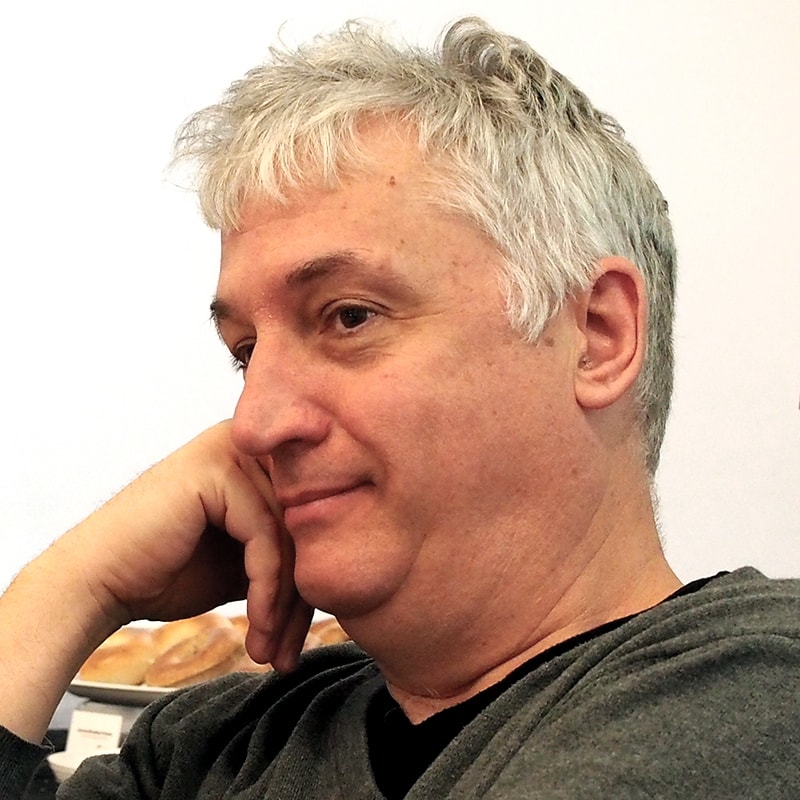
Shining A Light on Radicalized Language
By Stacy Kish
Tom Werner, associate teaching professor in the Department of Philosophy, knew his students were facing a unique period in American history. Technology, which was designed to bring society closer together, has had, in some cases, the opposite effect, creating insular communities that isolate people from their family, neighbors and friends.
Werner decided to offer the course “Disagreeable Language: Talk in the Age of Polarization” this spring to provide CMU students with the tools they could use to reduce the heat of contentious conversations and shine light on the facts of a situation to escape the “untruth matrix.”
“I think about language all the time,” said Werner. “I am addicted to online comments in articles and I think about the effect these comments may have [on the readers].”
According to Werner, people today talk past one another. Rather than trying to persuade, they sling insults that pile up on both sides. He decided to return to a course he created almost 20 years ago to help his students process the events unfolding during the early days of the invasion of Iraq and Afghanistan.
When Werner first taught the class, his students analyzed op-ed articles from the newspaper, which followed a very clear pattern. The writer would first state the factual case, then evaluate the case and finally offer an opinion. According to Werner, the situation is even more complicated today because people are now working off of different collections of facts — one based in mainstream belief and norms and another specific to a particular mindset.
“It is not just a difference of opinion but a complete disconnect as to what the facts are,” said Werner. “It’s a very different world.”
Werner points to technology as the biggest difference between the news cycle and social discourse in the early 2000s and today.
“Whatever social media platform you choose, you get feeds that reinforce beliefs,” he said. “People are not talking to each other across interests or belief systems but are being reinforced on their own bias.”
So he turned to linguistics to turn down the heat and shine some the light on current events.
According to Werner, people are being bombarded with so many different views that they often feel helpless. He believes language offers the tools students need to navigate the upheaval in the modern news environment.
The course introduces topics from linguistics and the philosophy of language. Students explore among other things, the perlocutionary effects of language, which is a fancy way of saying how language affects the person hearing it. Students develop skills to interrogate language critically to detect the reality behind it. They can use this knowledge to find new paths forward when communicating with one another, their family, neighbors and friends.
“The information I'm learning in class is readily applicable to my interactions with people who subscribe to a different set of facts than I do,” said Oliver Burnett, who is currently taking the course. “It can sometimes feel futile to oppose an argument supported by facts different than your own, but the techniques we're exploring in class can provide me with a sense of agency when otherwise I would feel swept away.”
Burnett, a junior with a double major in linguistics and physics, describes learning how to create a buffer using certain analysis techniques to navigate through a person's rhetoric in a somewhat objective way. The students learn how to examine the effect that language has on them to create, as Burnett describes it, “a small metaphorical ‘distance’ between myself and the dispute.” Burnett said this approach has helped him demystify what sometimes can feel like a tangled web of logic and to process the issue at hand, the other person's emotions and his emotions more effectively.
According to Werner, these tools have this corrective effect on all of us, but linguistics is a funny subject. It really can only teach people what they already know. They already know language and use it in incredibly complex ways. But they may not be fully aware of this knowledge and how to marshal it to construct their own solutions to this problem of polarization.
It’s kind of like Dorothy and her ruby slippers. She was wearing them the whole time but only through the magic of technicolor did we realize her plain silver slippers were the bejeweled ones adorning her feet.
“We have the tools to manage in this strange new environment, but we just may not realize it,” said Werner. “It also gives us the means to see past it, to wake up from it. We really can get out of Oz.”
